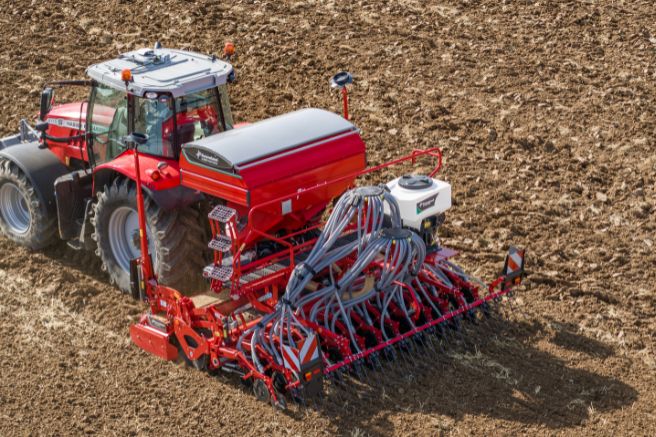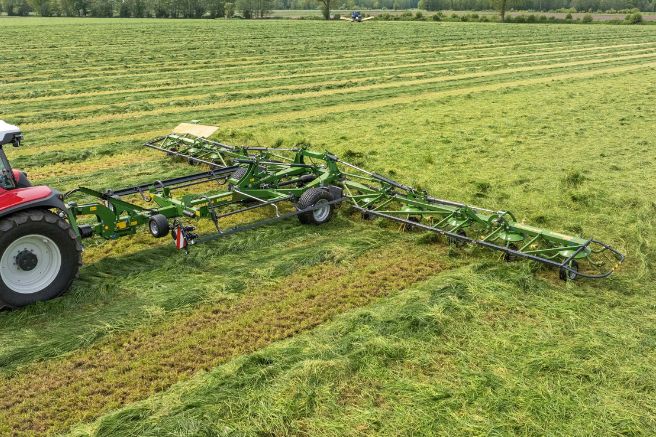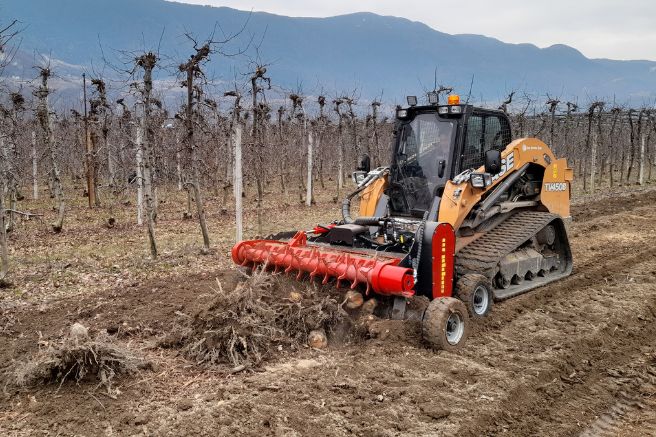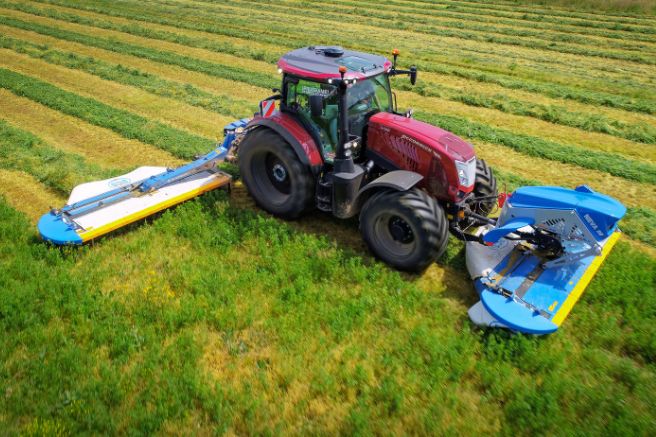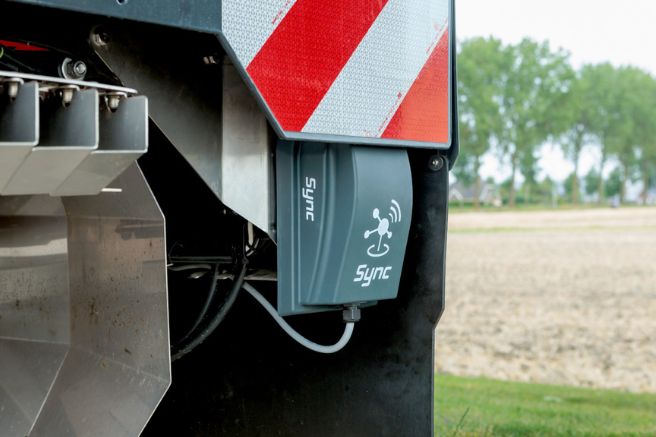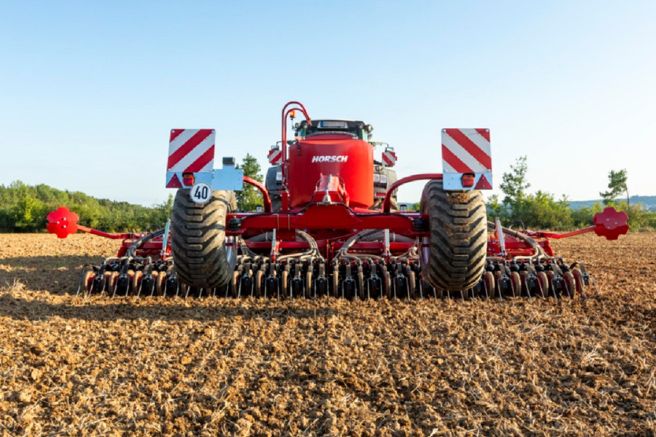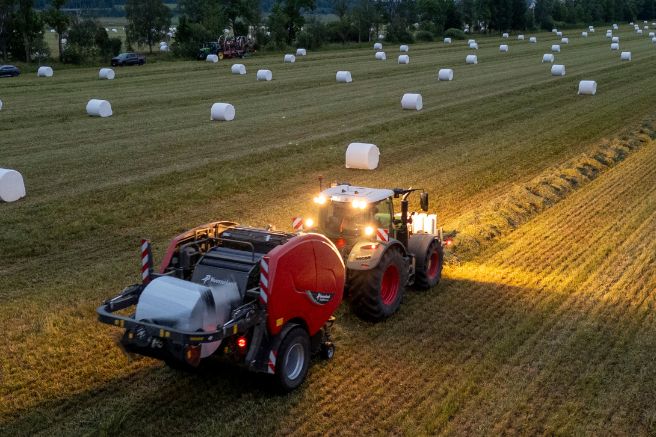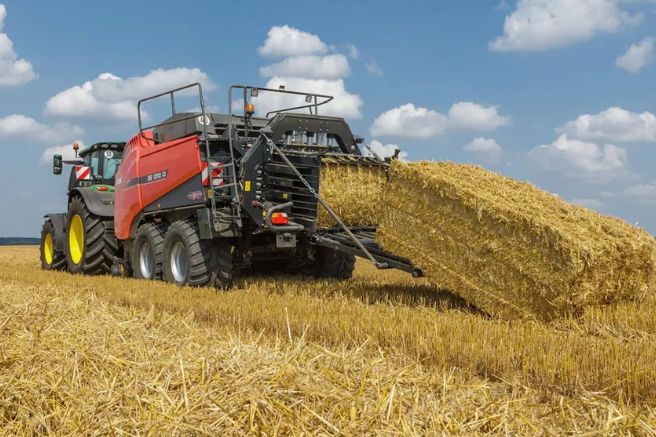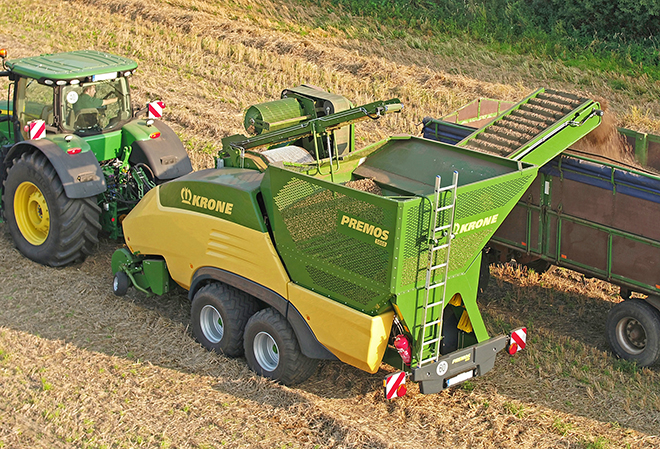In view of the upcoming cereal sowing, scheduled between the end of October and late November, it is important to equip yourself with the best solutions to finalize the soil preparation, which is necessary to ensure the precise placement of the seeds. With this in mind, the Kverneland range of precision seed drills offers multiple solutions to meet various operational needs. Efficient Combined Solutions Among the different available options, the combined machines stand out. These machines are composed of seed drills working in combination with rotary harrows, allowing for seedbed…
Read MoreCategory: Implements
Kuhn “Btfr” seed drills and “Hr” harrows: virtuous combinations
The combination of multiple implements to carry out different but sequential or related tasks in a single pass has become standard practice in the agromechanical field, as it allows for significant time and fuel savings. An example of this is the combination of seeding equipment with tools for soil refinement, a practice that has been common for years and has proven advantageous in terms of reducing both working time, which is halved, and fuel consumption, which significantly decreases, becoming lower than it would be if the two operations were performed…
Read MoreKrone “Vendro” and “Swadro” series, masters of rotation
Continuous improvement. In the Japanese tradition, it’s called by the exotic term “Kaizen,” or more prosaically, in the Italian way, it’s framed by the old but still valid adage “Never rest on your laurels.” Even when those laurels are abundant and might justify a moment of rest. In any case, it’s a business mindset that Krone has always embraced by continually launching new solutions in all its fields of activity. These innovations range from new technologies to product line expansions, the latter recently pursued in the segment of “Vendro” tedders…
Read MoreSeppi “Miniforst pick-up cl” shredder, a question of finesse
Collecting and removing woody residues from cultivated fields is a problem that affects all those working in specialized agriculture. Over time, this issue has increasingly driven agricultural entrepreneurs toward equipment that can best support them in maintenance activities, processing the collected material to make it easily assimilable into the soil. This also applies to olive groves and citrus orchards The latter objective is specifically addressed by the renewed “Miniforst pick-up cl” mulcher from Seppi, a hydraulically operated forestry machine aimed at the mechanical processing of pruning residues in specialized environments.…
Read MoreAlways the right pressure with Bcs “Neva Avant” mowers
In 1943, Luigi Castoldi, Camillo Bonetti, and Severino Speroni developed the first self-propelled sickle bar mower with oscillating blades in history, a machine labeled “242,” which revolutionized an agricultural sector that, until then, relied primarily on human labor. Over time, the machine was continuously refined and complemented by other motorized mowers. It also gave rise to a series of front-mounted oscillating blade mowers, later followed by front-mounted rotary disc mowers. Decades of Expertise In fact, it can be said that Bcs’s experience in the field of front-mounted mowers boasts more…
Read More“Kverneland Sync,” the new equipment gateway
Kverneland has announced the launch of Kverneland Sync, the new equipment gateway designed to enhance data exchange in agriculture through reliable mobile network connectivity. Kverneland Sync ensures productivity, quality, and efficiency, marking a new era in farm management, with a focus on connectivity and operational efficiency. Connectivity and Efficiency Kverneland Sync represents modern agriculture. Its “Always Connected” feature ensures that your equipment remains seamlessly connected to Kverneland’s online services, regardless of the Isobus terminal. This eliminates manual synchronization, improves efficiency, and enables data transfer through IsoMatch FarmCentre and Kverneland ServiceCentre.…
Read MoreHorsch “Pronto 6 Kr” seed drills, ideal even for the hardest soils
At the end of summer, the season with unpredictable weather may lead to varying soil conditions in terms of moisture, shortening the available time for the final fieldwork and sowing. This creates the need or even just the convenience of combining the last fieldwork with sowing, thereby taking advantage of the right time window despite the unpredictable weather. In this regard, the ideal solution can be found in the range of Horsch seed drills for cereals, particularly in the “Pronto 6 Kr” model, where the number six refers to the…
Read MoreKverneland “FastBale Premium”, world record baling
On Tuesday, July 2nd, the Kverneland Group Sweden team embarked on an attempt to break the world record at the Bro Godås farm in Säffle, Sweden. The goal was to achieve the highest number of bales produced during 24 hours of continuous work. To prepare, 100 hectares of wrapped forage were pre-cut. At 5:00 PM, Oscar Svantesson Mander began the challenge using a 240 HP tractor and the latest combination of baler and wrapper, the Kverneland Non-Stop “Kverneland FastBale Premium.” The attempt resulted in a world record of 1,587 wrapped…
Read MoreWith Kuhn’s “Sb 1290 iD” Square Balers, Maximum Value for Straw
For Italian wheat, 2024 will not be a good year. For durum wheat, forecasts are limited to just three and a half million tons, a decrease of eight percent compared to 2023 and 15 percent compared to the long-term average. This is according to estimates from Crea, the Council for Agricultural Research and Economics. This decline is mainly due to unfavorable weather conditions, particularly in the southern regions of Italy, where decreases are estimated to range from thirty percent in Puglia to seventy percent in Sicily. Strategic for Profitability In…
Read MoreKrone “5000” pelleting machines, more unique than rare
The first European Directive in favor of animal welfare dates back to 18 November 1974 and concerned the obligation to stun animals before slaughter. Today this may seem trivial, but 50 years ago the animal was not yet considered a sentient being and was therefore treated as a mere object. Since then, various other European initiatives have followed, such as the Amsterdam Protocol on the protection and welfare of animals in 1999. Especially in recent years, laws have come into force on the minimum spaces to be ensured for farmed…
Read More
